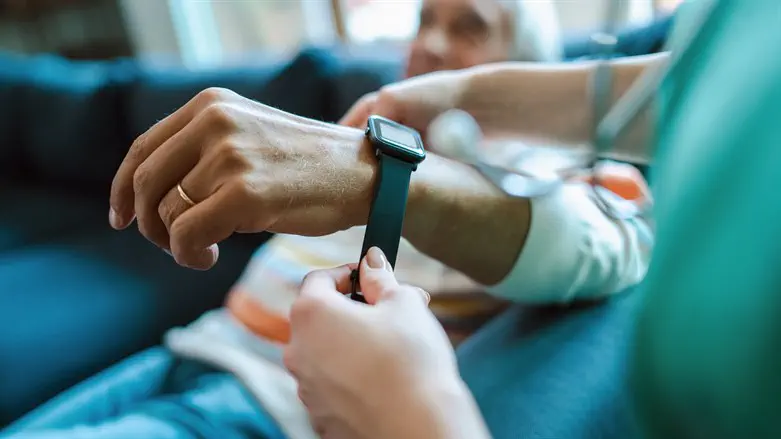
Sheba Medical Center, Israel’s largest medical center and a Newsweek top-10 ranked world’s best hospital for the last four years, announced Tuesday the results of a new study validating the use of wearable telehealth technology for monitoring hospitalized patients.
The study, published in the peer-reviewed JMIR Formative Research Journal, examined the effectiveness of a wearable remote patient monitoring (RPM) device which monitored for early warning signs of clinical deterioration.
Using data collected from the wearable RPM, the study found the remote device, when measured using the NEWS method (National Early Warning Score), provided 67% of cases with an early warning of deterioration before it was detected by medical staff, at an average of 29 hours prior to actual clinical detection. That number rose to 75% when using the ABCNO criteria (Airway, Breathing, Circulation, Neurology, and Other), with deterioration detected an average of 38 hours ahead of time.
“With the rapid development of innovative telehealth technologies, it is important to consider the clinical barrier of validation which is vital for turning telehealth into evidence-based medicine,” said Prof. Gad Segal, Head of Internal Telemedicine at Sheba Medical Center and principal investigator of the study.
“This study shows that disruptive telehealth can provide viable alternatives to clinical deterioration detection by medical staff. The output signals from remote monitoring can be equivalent to medical-grade ICU monitoring and that opens up the horizon for home hospitalization of true patients, aligning with Sheba Beyond’s vision of supporting the global transition to telemedicine.”
The wearable RPM provides continuous monitoring of blood pressure, pulse rate, oxygenation and photoplethysmography (PPG) signal wave, all easily accessed via an LED screen and mobile app. Biobeat®, which supplied the device, is an Israeli company founded in 2016 with the goal of providing comprehensive AI-powered wearable remote patient monitoring platforms designed to elevate the standard of care for both short- and long-term healthcare environments.
With the outbreak of COVID-19 in Israel in March 2020, Sheba Medical Center swiftly converted several departments to fully quarantined units for COVID-19 patients, necessitating rapid adaptation of telehealth technologies including the Biobeat® remote health monitoring system.
In addition to its work in Israel, Sheba Beyond, Sheba’s virtual hospital, provides high-quality remote medical care to patients around the world. It is currently using its platform to treat Ukrainian refugees, connecting them to doctors in Sheba through a variety of femtech and other telehealth technologies.
